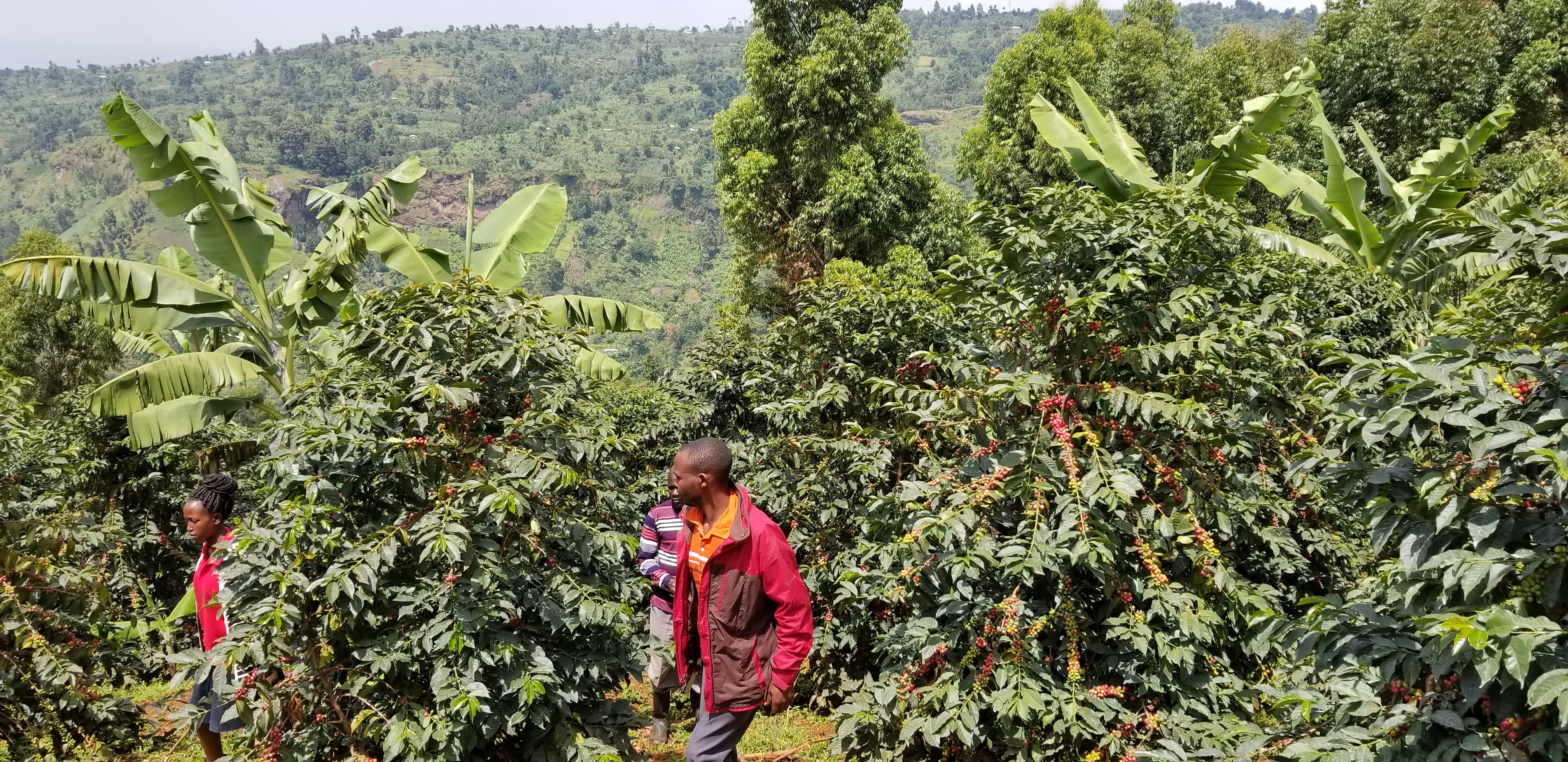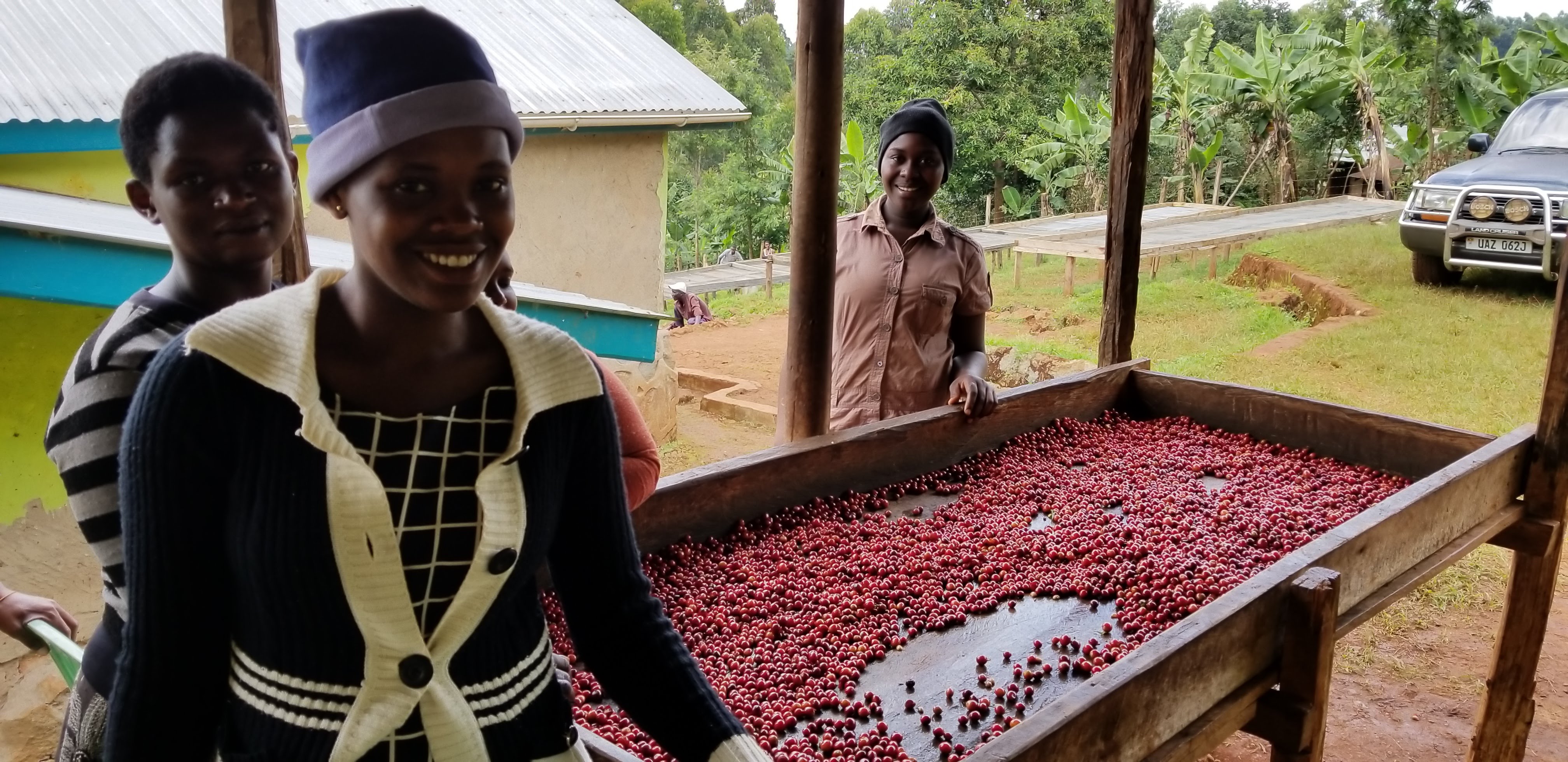Uganda coffee is one of East Africa’s most promising origins. While the country is often associated with home-processed naturals, the specialty sector is growing fast thanks to improved processing, stronger infrastructure, and long-term partnerships between farmers, exporters, and buyers. The result is a broad range of profiles , from clean washed coffees to juicy, expressive naturals.
When Did We Begin Sourcing Coffee from Uganda and Why?
We began sourcing uganda coffee in 2018 because the potential was clear: high-altitude regions, SL varieties, rich soils, and smallholder communities ready for change. Historically, most of the country relied on home drying and basic processing, which limited consistency and traceability. By shifting deliveries toward central washing stations and professional drying facilities, we’ve been able to secure coffees that are stable, transparent, and expressive.

How Is Coffee Produced and Dried in Uganda?
Most coffee in Uganda is home processed, meaning the farmers pick the cherries and either de-pulp it with a hand pulper, or simply dry the cherries on a tarp. We don’t buy home processed coffees as we find them inconsistent in quality and difficult to fully trace. Instead, our buying programmes are based on a centralised processing/drying facility. At these stations, cherries are sorted, floated, fermented with intention, and dried on raised beds. For natural lots, this step makes a huge difference: airflow, shade management, and slow drying allow the coffee beans to develop nuance and longer shelf life.
Uganda’s processing landscape is still evolving, but the direction is promising. Investments in infrastructure, training, and drying capacity are beginning to reshape how coffee farming is practiced across major producing regions.

Which Processing Is Used for Coffee Across Different Regions?
Processing methods in Uganda are different, depending on the region.
Naturals in the East: Most of our coffees undergo a semi-anaerobic fermentation. After cherry reception, the coffees are laid out on African beds for pre-drying, and cherries are sorted as they dry. The coffee is then placed in drums or polypropylene bags for additional fermentation. This can last for 12 – 48 hours, after which it is laid on the table. Layers are adjusted accordingly to meet the projected time for final drying, normally 10 – 18 days.
Naturals in the West: These are usually dried without additional fermentation. Coffee cherries are laid out on the bed in layers, depending on the level of fermentation the producer wants to achieve. We have a separate protocol for cherry fermentation under plastic, before the coffees are dried according to standard procedures for naturals.
Washed in the East: Coffees at the washing stations are pulped with eco-pulpers before they are dry-fermented in small plastic or concrete tanks. The coffee is then washed and rinsed before it is dried on raised beds.
Washed in the Southwest: Coffees from the farm are picked and go straight into processing. We have different levels and methods of fermentation both in cherry and in parchment. Cherry fermentation is done on plastic in the open air, or in bags before the coffees are pulped with an eco-pulper and treated like regular washed coffees before they are dried on raised beds.
Regular washed or additional fermentations are also conducted differently. Fresh cherries are harvested and pulped immediately by an eco pulper. They are then either fermented in bags or in regular fermentation tanks for different periods of time, depending on the level of fermentation and flavours we want to produce. All coffees are carefully dried on raised beds, mostly under shade and cover.

Our Coffee Flavour Profiles
Depending on the processing style, Uganda coffees can be: Classic naturals, wild and boozy naturals, classic washed, fruity washed
These coffees work well across filters, adventurous espresso profiles, and more playful single-origin offerings.
When Is the Harvest Season for Uganda Coffee, and What Are Typical Volumes and Logistics?
Harvest: Varies by region, but many areas pick nearly year-round
Arrivals: Two main seasons: July–August and January–April
Lot sizes: 10–20 bag microlots, and larger communal lots above 100 bags
Packing: 60 kg Grain Per Bag
How Do We Ensure Transparency and Stable Pricing?
Uganda’s market is influenced by daily cherry pricing, which is why many roasters ask about coffee prices in uganda today. Prices shift quickly, often driven by competition among buyers. The prices of coffee in uganda can rise sharply during peak cherry demand, sometimes putting pressure on washing stations that rely on stable volumes.
To maintain quality, we work on pre-contracting, committing to volumes, and sometimes pre-financing. This structure helps stations buy cherries at sustainable levels, rewards farmers for well-picked fruit, and protects the long-term viability of the supply chain.
What Impact Does Coffee Export and Specialty Production Have in Uganda?
Uganda is one of Africa’s most important origins when it comes to coffee exports, though much of that volume is still commodity-grade. Specialty production is growing as more farmers deliver cherries to central stations and as better infrastructure is established in producing regions.
Our long-term work in places like Bulambuli , where a washing station built in 2022 now serves hundreds of farmers , focuses on upgrading processing capacity, improving cherry selection, and reinforcing stable pricing systems. These changes increase quality, traceability, and farmer income.
Our project in Bulambuli: strengthening Uganda's potential
Why buying Ugandan Coffee?
Uganda coffee is entering a momentum phase. With SL varieties gaining ground, expanding processing capacity, and a national shift toward more professional post-harvest practices, the country is increasingly able to deliver consistent, expressive coffees year after year.
For roasters, Uganda offers strong value, unique flavour opportunities, reliable natural and washed profiles, and access to emerging terroirs and innovative processing experiments. For farmers, transparent buying practices and stable, long-term demand provide a foundation for improved livelihoods and a more secure future in coffee farming.
Learn more about our other coffees from East Africa
Tanzania Specialty Coffee Comeback & What has changed at Origin
Buying Specialty Coffee in Rwanda: Challenges, Updates and Impact

